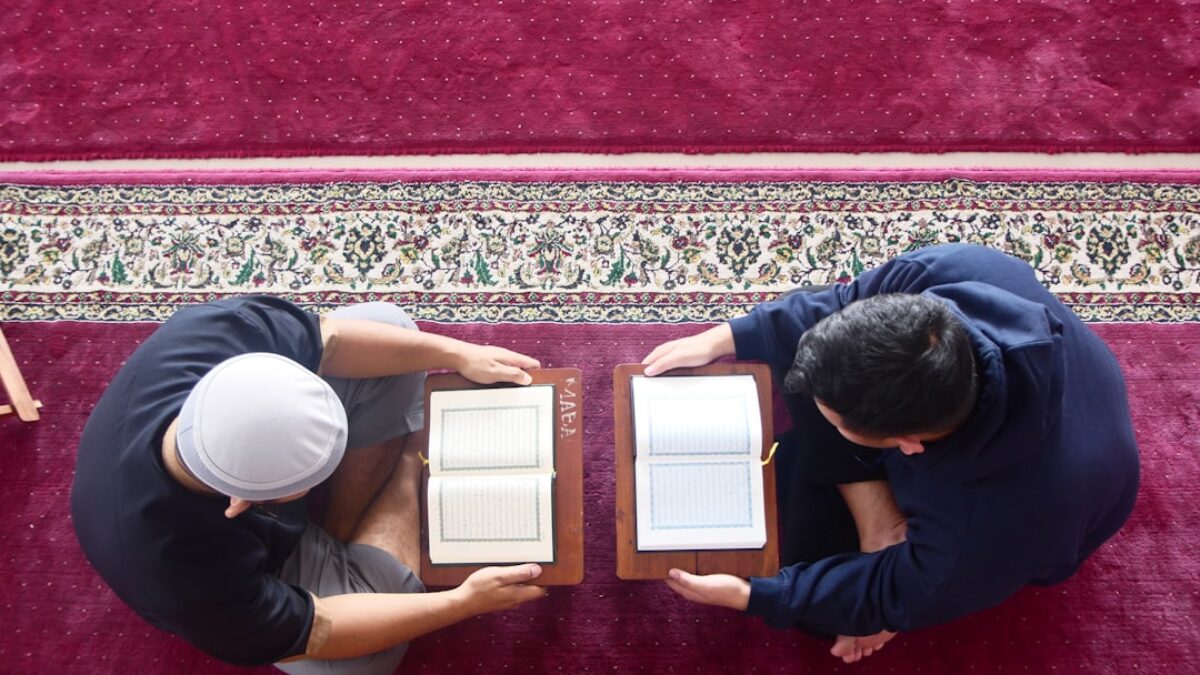Introduction
Gratitude is a universal concept transcending cultures, languages, and religions. In Islam, gratitude takes on a profound significance, deeply embedded in the teachings of the Quran and the Hadith. This article delves into the spiritual power of gratitude within the Islamic tradition, exploring its foundational principles, the psychological and emotional benefits, and practical steps for its implementation. We will also include authentic reviews from practicing Muslims, real-world examples, and a comprehensive FAQ section, culminating in a robust understanding of how gratitude can enrich spiritual lives.
Understanding Gratitude in Islam
The Quranic Foundation
The Quran serves as the primary source of Islamic teachings, and gratitude is emphasized throughout its verses. One prominent verse is Surah Al-Baqarah (2:152), which states, "So remember Me; I will remember you. And be grateful to Me and do not deny Me." This verse underscores a reciprocal relationship between God and humans, wherein gratitude is a means of acknowledgment and love towards the Creator. The act of remembrance and gratitude not only strengthens faith but also fosters a sense of connection and responsibility. Furthermore, the Quran repeatedly mentions the "grateful" (Al-shākirīn) as a characteristic of the believers, encouraging Muslims to cultivate this quality in their daily lives.
The Hadiths Emphasizing Gratitude
The Hadith, or sayings of Prophet Muhammad (peace be upon him), further illuminate the importance of gratitude in Islam. One renowned Hadith states, "He who does not thank people does not thank Allah" (Sunan Abu Dawood). This saying highlights that gratitude should not be limited to God alone; appreciating others reinforces social bonds and cultivates a compassionate community. Prophetic traditions are rich with examples where the Prophet himself would express gratitude, whether for food, favors, or even challenges, framing gratitude as a holistic practice.
Interconnectedness with Faith
In Islam, gratitude (shukr) is intricately linked with faith (iman). It is both a form of worship and a reflection of one’s relationship with God. The acknowledgment of God’s bounties, whether material or spiritual, serves as a foundation for a robust faith. This interconnectedness is evident in the Quranic declaration, “If you are grateful, I will surely increase your favor upon you” (Surah Ibrahim, 14:7). Here, gratitude is presented not only as an act of worship but as a means of attracting divine blessings.
Psychological and Emotional Benefits
Gratitude and Well-being
Numerous studies corroborate the psychological benefits of practicing gratitude, revealing its impact on emotional well-being. Gratitude fosters positive emotions, enhances life satisfaction, and reduces feelings of anxiety and depression. In an Islamic context, this aligns with the concept of inner peace (sakinah). When Muslims practice gratitude, they experience tranquility, as they recognize and appreciate God’s blessings, leading to an overall uplift in mood.
Case Study: Transformative Experiences
A noteworthy example of the impact of gratitude can be illustrated through the stories of many practicing Muslims who have navigated the trials of life. For instance, a Muslim woman named Aisha shared her journey of overcoming personal challenges, including the loss of a loved one. Initially engulfed in sorrow, she turned to her faith. Through prayer and gratitude, she began to focus on the positive memories shared with her loved one and on the lessons learned through hardship. Aisha noted that expressing gratitude significantly contributed to her healing process, ultimately guiding her to find joy in her daily life once again.
Gratitude as a Resilience Tool
Practicing gratitude equips individuals with resilience. In an Islamic perspective, this aligns with the notion of Sabr (patience) during adversity. Muslims are encouraged not only to endure hardships but also to recognize the blessings that ensue from them. For example, observing difficulties as opportunities for personal growth fosters a positive outlook and enables believers to navigate life’s challenges with grace.
Real-world Applications of Gratitude
Daily Expressions of Gratitude
One practical way Muslims can integrate gratitude into their daily lives is through regular expressions of thanks. Simple practices, such as verbally thanking a person for their kind actions or acknowledging the small bounties of life, create a culture of appreciation. The habit of saying “Alhamdulillah” (Praise be to God) upon waking, eating, or experiencing even the minutiae of daily life fosters a continuous reminder of God’s blessings.
Journaling Gratitude
An effective modern method for cultivating gratitude is through journaling. Many practicing Muslims share how maintaining a gratitude journal deepens their spiritual connection. In this practice, one records daily blessings, prayers of thankfulness, or accounts of challenges faced. This tangible reminder serves as a reflection of God’s blessings, helping individuals to realize the abundance present in their lives, even during tough times.
Community and Gratitude
Gratitude is not just an individual practice but also communal. In Islamic tradition, acts of charity (sadaqah) are frequently linked with gratitude. When Muslims give back to their community, they express gratitude for their own blessings while simultaneously uplifting others. For instance, community food drives during Ramadan reinforce the cycle of gratitude, as those who contribute are reminded of their own bounties while helping those in need.
Authentic Perspectives: Reviews from Practicing Muslims
Mohammed’s Testimonial
Mohammed, a 34-year-old software engineer, shares his gratitude journey after attending an Islamic seminar focused on shukr. "I entered the seminar skeptical; I didn’t think a few words of thanks could change anything. However, it awakened something within me. I began practicing daily gratitude and noticed how my interactions with family and colleagues improved. I feel a sense of peace now that I didn’t feel before."
Fatima’s Reflection
Fatima, a school teacher, discusses her use of gratitude journaling. "At first, it felt tedious. But over time, I found myself discovering new blessings daily. I jot down simple moments, like a good cup of tea or a warm smile from a student. When life gets overwhelming, I revisit those entries, and it rejuvenates my faith and draws my focus back to God’s mercy."
Practical Tips for Implementing Gratitude in Daily Life
1. Start with Daily Affirmations
Begin each day with affirmations of gratitude. Upon waking, recite the phrase "Alhamdulillah" and list three things you are grateful for. This sets a positive tone for the day.
2. Create a Gratitude Ritual
Establish a daily ritual dedicated to gratitude, like a specific time for prayer or reflection. Consider performing this ritual after Salat (prayers) to magnify its spiritual significance.
3. Engage your Community
Participate in community service or charity programs. Engaging actively in your community not only serves those in need but allows you to practice gratitude in action, reflecting on your blessings while uplifting others.
4. Share Your Gratitude
Communicate your appreciation verbally or through small notes. Write letters or send messages to individuals who have positively influenced your life, expressing how their actions have impacted you.
5. Reflect during Prayer
Incorporate gratitude into your prayers. Use your Salah (prayer) to articulate specific blessings and moments of thankfulness. This not only strengthens your connection with God but also reinforces gratitude in your heart.
Frequently Asked Questions
1. Why is gratitude emphasized in Islam?
Gratitude is a vital aspect of worship in Islam. It acknowledges God’s bounties and strengthens the believer’s relationship with the Creator, fostering a positive community and individual well-being.
2. Can gratitude affect mental health?
Yes, practicing gratitude has been linked to improved mental health. It enhances emotional well-being, reduces anxiety, and elevates overall life satisfaction, aligning with Islamic teachings on inner peace.
3. How can I start practicing daily gratitude?
You can begin by maintaining a gratitude journal, initiating daily verbal affirmations of thanks, or engaging in community service. Start small, and gradually incorporate gratitude into your spiritual and daily routines.
4. What should I do during difficult times?
During challenging moments, focus on recognizing the lessons and growth opportunities that come with hardship. Engage in prayer, reflect on past blessings, and seek support from your community.
5. Does practicing gratitude require a specific religious practice?
While gratitude is a key aspect of Islamic teachings, its principles can be universally applied. Individuals from various faiths can practice gratitude to enhance their spiritual lives and overall well-being.
Conclusion
The spiritual power of gratitude in Islam encompasses profound teachings that enrich the lives of believers. By recognizing and appreciating the countless bounties bestowed upon us, Muslims navigate life with a sense of peace and purpose. The integration of gratitude practices into daily routines not only fosters personal growth but also strengthens community bonds. In embracing gratitude as a central tenet of their spiritual journey, individuals align with divine blessings and cultivate a life of integrity, compassion, and resilience.
As we reflect on the teachings of the Quran and Hadith, let us commit to nurturing gratitude in our hearts. Through consistent practice, we can unlock the transformative power of gratitude, enriching our spiritual lives and the lives of those around us.
























Post Comment